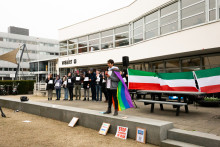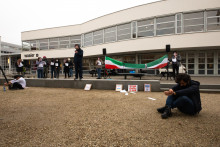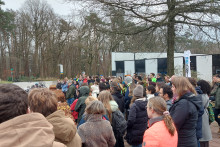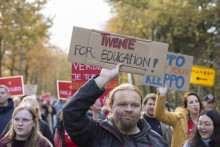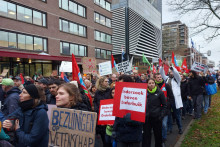About eighty people attended the protest, clustered around a group of about ten speakers. Many of them wore masks of people killed by the Iranian government, with the speakers standing around three Iranian flags. During the speeches, sad – and even crying – faces of Iranians were noticeable, but also some non-Iranians eagerly listening to the speakers.
304 people killed
The UT wasn't the only university where there was a solidarity action for Iran. Communities at more than 150 universities worldwide joined yesterday. On campus, the demonstration mainly focused on the losses caused by the situation in Iran. There were pictures everywhere of children, women and men who have lost their lives at the hands of the Iranian government.
One of the speakers, Azadeh Akbari Kharzari, assistant professor of public administration and political science at UT, started the protest by explaining the current situation in Iran: ‘As of 12 November, 304 people have been killed. Some of their stories are told and you can see some of their faces here today.'
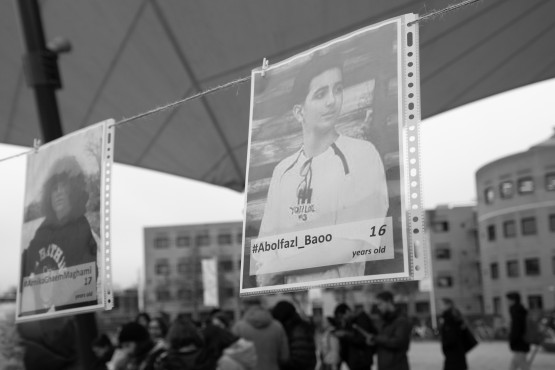
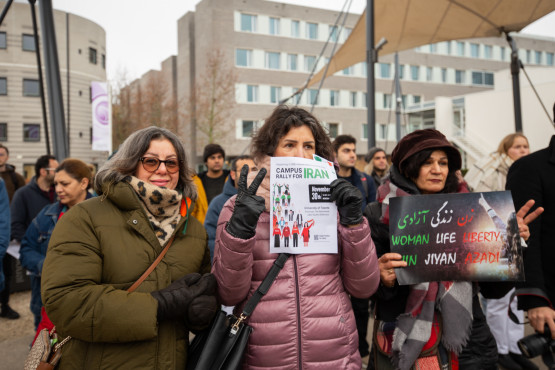
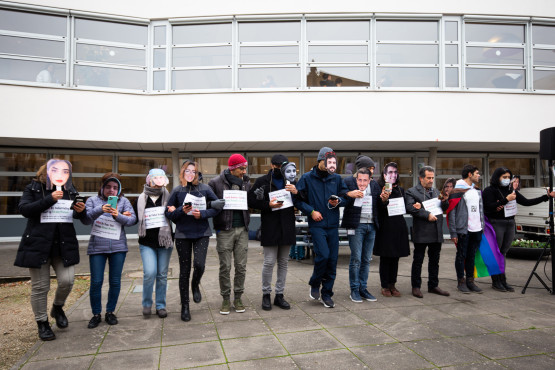
‘Undeniable freedom’
To emphasise the importance of honouring the dead of the protests, the speakers carried pictures of the faces of the people killed by the Iranian regime on their faces. One by one, they came forward and told the story of the person killed, after which the entire crowd repeated the person's name. The protest also focused on Iranian culture and identity, which was evident through the singing of Iranian songs. The speakers and the crowd sang together to connect with their Iranian culture.
While people have been protesting the Iranian regime, following the arrest – and suspicious death – of Mahsa Amini for not wearing a hijab, discrimination against women was not the only issue of the protest. One of the other speakers, Fran Ghozat, a master's student in Communication Science, remarked: ' The members of the LGBTQ+ community fear death in Iran. We are demanding the undeniable freedom of the entire LGBTQ+ community.’
Furthermore, Akbari Kharzari stressed that the movement can only be successful if it fights not only for the rights of women, but for all people who are discriminated against in Iran. 'The liberation of Iran will not be possible without the liberation of women, ethnic minorities, LGBTQ+ and religious minorities.’
